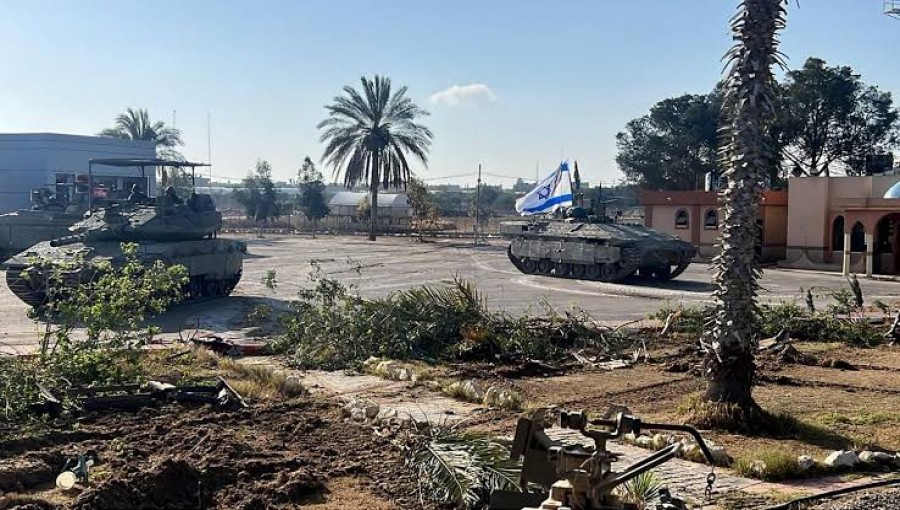The US administration has taken a significant step by suspending a planned shipment of ammunition to Israel, citing concerns about a potential large-scale operation in Rafah. This decision marks a notable shift in US-Israel relations and underscores growing tensions surrounding the situation in Rafah.
According to a senior official of the US administration, the shipment, which was intended to include a substantial amount of bombs, weighing approximately 1 crore 80 lakh 2 thousand pounds and 17 lakh 500 pounds, was put on hold due to apprehensions regarding the safety of civilians in Rafah. This move is the first of its kind to be officially announced by Washington.
The decision comes amidst escalating tensions in the region, with Israel's recent positioning of tanks at the Rafah crossing, effectively taking control of the border post between Egypt and Gaza. This move has raised concerns about the flow of aid to Gaza, as the Rafah border serves as a crucial route for humanitarian assistance.
While the US has refrained from commenting on the specifics of the decision, a spokesperson for the US National Security Council emphasized the Biden administration's commitment to Israel's security. However, the White House has condemned the closure of the Rafah border as "unacceptable," highlighting the impact on aid delivery to Gaza.
In response to the suspension of the ammunition shipment, Israel expressed surprise and sought clarification from US authorities. The Israeli government had been expecting the arrival of the weapons, which were delayed without official explanation.
Analysts view the US decision as a reflection of President Biden's warning last April, signaling a potential shift in US policy towards Israel if civilian protection concerns are not addressed. The decision to suspend the ammunition shipment underscores growing unease within the Biden administration regarding Israel's actions in Rafah.
As discussions between Israeli and US officials continue, the Biden administration remains steadfast in its commitment to reevaluate arms shipments to Israel. The focus is particularly on weapons that could potentially be used in the Rafah campaign, with a keen eye on mitigating civilian casualties in the region.
While the suspension of the ammunition shipment represents a significant development in US-Israel relations, the broader implications for regional stability and humanitarian efforts in Rafah remain uncertain. The situation continues to evolve as diplomatic efforts persist in addressing the escalating tensions in the region.





























Comment: